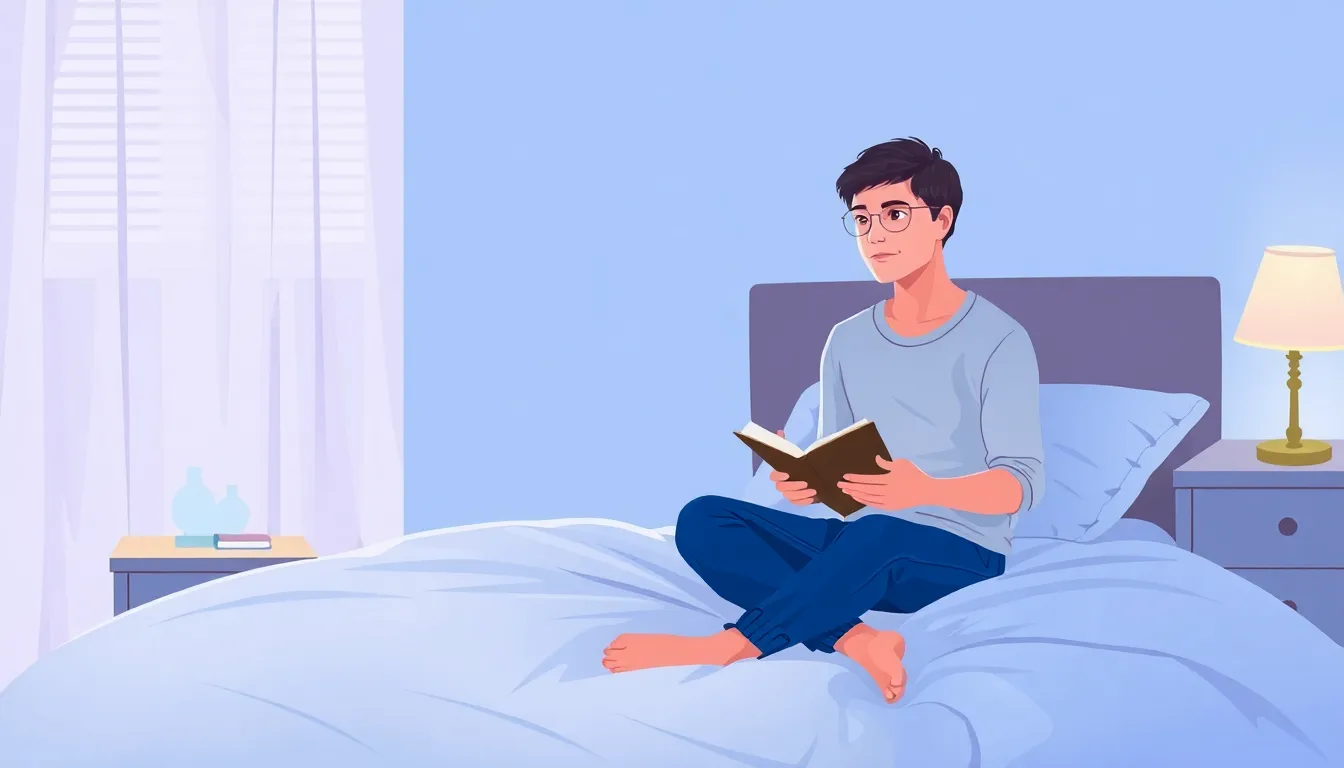Table of Contents
ToggleSleep and mental health are like peanut butter and jelly—they just go together. When one’s off, the other might just throw a tantrum. Picture this: tossing and turning all night while your brain runs a marathon of worries. It’s a recipe for a grumpy morning and a day filled with brain fog. But fear not! Understanding the connection between sleep and mental well-being could be the key to unlocking a happier, healthier you.
In a world where counting sheep has become a nightly Olympic event, it’s time to dive into why those precious Z’s are crucial for mental clarity. From mood swings to anxiety, sleep deprivation can turn anyone into a cranky zombie. So grab your favorite pillow, settle in, and discover how prioritizing sleep can transform not just your nights, but your days too. After all, who wouldn’t want to wake up feeling like a million bucks?
Understanding Mental Health and Sleep
Mental health and sleep are closely intertwined, with each significantly impacting the other. Quality sleep supports emotional regulation and cognitive functions, while poor sleep can exacerbate mental health issues.
The Connection Between Mental Health and Sleep
Research shows that adequate sleep promotes resilience against stress and enhances mood stability. People who prioritize sleep often experience reduced symptoms of anxiety and depression. Insufficient sleep, on the other hand, can create a vicious cycle; as mental health deteriorates, sleep patterns tend to worsen. Understanding this relationship allows individuals to adopt strategies that foster both better sleep and improved mental well-being.
Effects of Sleep Deprivation on Mental Health
Sleep deprivation can lead to several negative outcomes, including heightened irritability, difficulty concentrating, and an increased risk of anxiety disorders. Studies indicate that individuals lacking sufficient sleep may face a greater risk of developing mood disorders. A consistent lack of sleep often results in impaired decision-making and emotional instability. Addressing sleep deprivation through healthy habits may significantly improve mental health over time.
Common Sleep Disorders Impacting Mental Health

Sleep disorders significantly affect mental health, contributing to various issues that can disrupt day-to-day life. Understanding these disorders is crucial for improving overall well-being.
Insomnia
Insomnia involves persistent difficulty falling asleep or staying asleep. Studies show that approximately 30% of adults experience insomnia at some point. This condition can exacerbate feelings of anxiety and depression. Individuals often find themselves struggling with concentration and emotional stability. Inadequate sleep leads to increased irritability, affecting relationships and productivity. Techniques such as cognitive behavioral therapy have proven effective in treating insomnia. Prioritizing good sleep hygiene can enhance sleep quality, improving mental health outcomes over time.
Sleep Apnea
Sleep apnea is characterized by interruptions in breathing during sleep. It affects about 5% of adults, often leading to excessive daytime sleepiness. This disorder can contribute to the development of anxiety and mood disorders. Individuals with sleep apnea frequently experience fragmented sleep, reducing the overall quality of rest. Continuous positive airway pressure devices have shown effectiveness in treatment. Addressing sleep apnea can lead to improved mental clarity and emotional resilience. Engaging in regular sleep assessments promotes awareness of sleep issues, fostering better mental health management.
Strategies for Improving Sleep Quality
Improving sleep quality plays a critical role in enhancing mental health. Implementing effective strategies can significantly impact overall well-being.
Sleep Hygiene Practices
Establishing consistent sleep hygiene practices fosters better sleep. Creating a sleep-conducive environment benefits individuals. Keeping the bedroom dark, quiet, and cool maximizes comfort. Limiting screen time before bedtime promotes relaxation and readiness for sleep. Reducing caffeine and heavy meals close to bedtime minimizes sleep disruptions. Engaging in calming pre-sleep routines, such as reading or meditation, enhances relaxation. Aligning sleep schedules with circadian rhythms aids in achieving restful slumber.
Cognitive Behavioral Therapy for Insomnia
Cognitive Behavioral Therapy for Insomnia (CBT-I) stands as an effective treatment option. Identifying negative thought patterns that disrupt sleep serves as a key component. Adjusting these thoughts can lead to improved sleep quality. Implementing behavioral techniques, such as stimulus control and sleep restriction, enhances the likelihood of falling asleep. Engaging in CBT-I encourages deeper understanding of sleep habits and their effects on mental health. Professionals typically offer this therapy over several sessions, focusing on creating long-term solutions. Participants often note significant reductions in insomnia symptoms after completing CBT-I.
The Role of Medication and Therapy
Medication and therapy play significant roles in addressing sleep issues and their impact on mental health.
Antidepressants and Sleep
Antidepressants primarily prescribed for mood disorders may influence sleep patterns. Some medications, like selective serotonin reuptake inhibitors (SSRIs), can improve sleep quality while alleviating depressive symptoms. For example, studies indicate that approximately 30% of individuals experience enhanced sleep upon starting antidepressant treatment. On the other hand, certain antidepressants might cause sleep disturbances, leading to daytime fatigue. Monitoring and adjusting medication under a healthcare provider’s guidance is crucial for maximizing benefits and mitigating side effects. Ensuring open communication about sleep issues helps providers tailor treatment plans effectively.
Behavioral Therapies
Behavioral therapies prove instrumental in improving sleep quality and addressing mental health concerns. Cognitive Behavioral Therapy for Insomnia (CBT-I) targets unhealthy sleep behaviors and thoughts, offering strategies to promote better sleep habits. Research shows that 70% of individuals undergoing CBT-I report reduced insomnia symptoms. Additionally, therapies incorporating mindfulness and relaxation techniques help alleviate anxiety and improve sleep. Engaging in these therapies fosters long-term improvements in both sleep and overall mental health. Practicing consistency with behavioral strategies ensures better outcomes in managing sleep issues linked to mental health challenges.
Prioritizing sleep is essential for maintaining mental health. Quality sleep not only enhances emotional regulation but also supports cognitive functions. By addressing sleep disorders and adopting healthy sleep habits, individuals can break the cycle of poor sleep and deteriorating mental health.
Implementing strategies like creating a calming sleep environment and engaging in relaxation techniques can lead to significant improvements. As research continues to highlight the intricate link between sleep and mental well-being, taking actionable steps toward better sleep can foster resilience against stress and promote a more positive outlook on life. Investing in sleep is investing in mental health.





